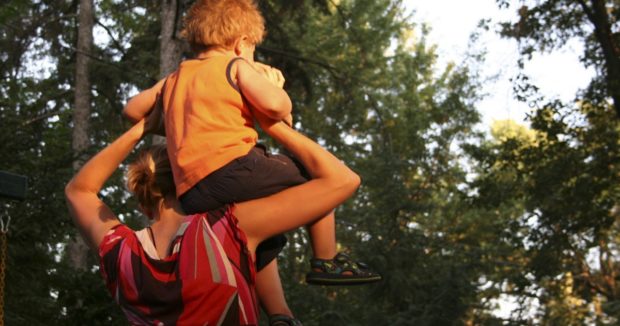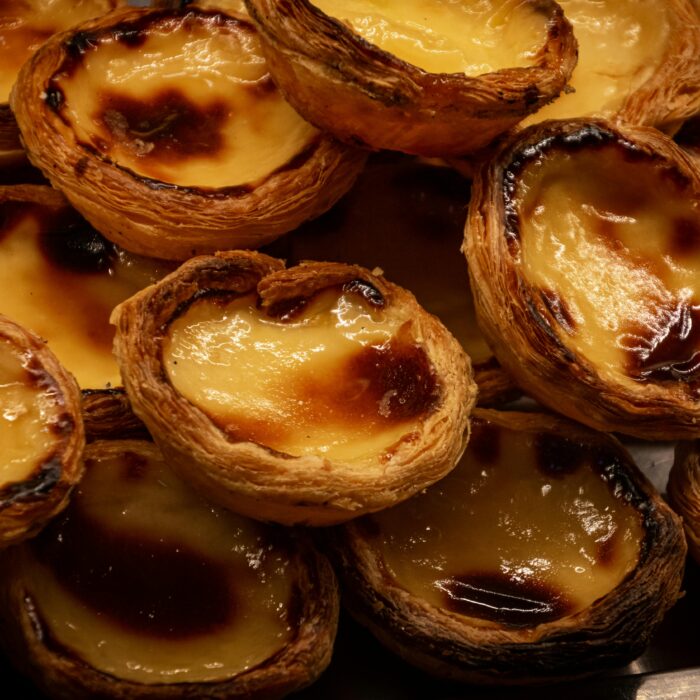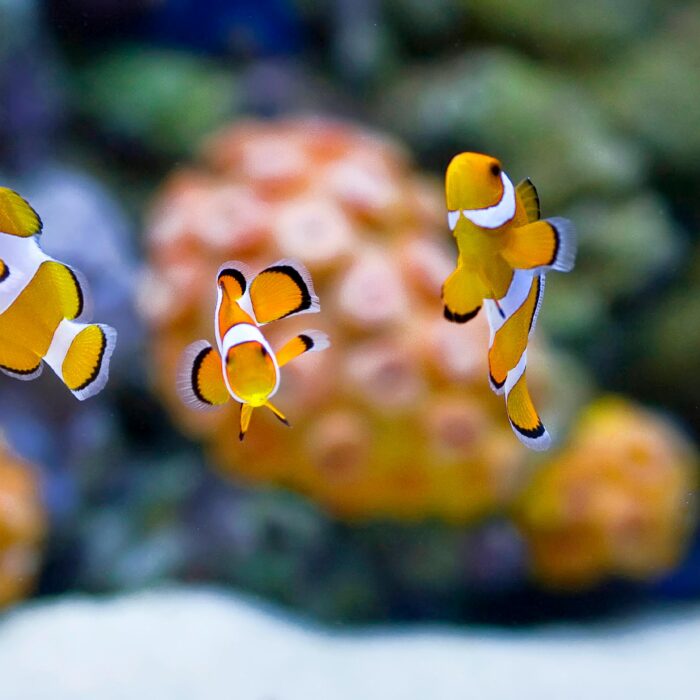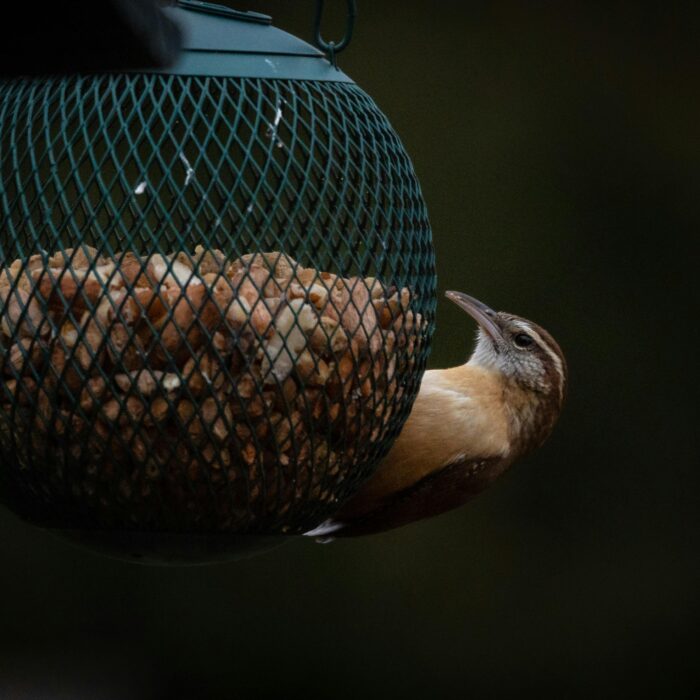You have no items in your cart. Want to get some nice things?
Go shopping“You are inimitable, irresistible. You are the delight of my life.”
—Jane Austen in a letter to her niece, Fanny, on February 20, 1816

I was twelve years old when my first niece was born, five years younger than Jane Austen was when little Fanny Knight came into her life. You don’t get a say in becoming an aunt. It just happens to you. No action or qualifications required. In my over twenty years as “Emmy” to the young children in my family, I’ve spent a great deal of time thinking about what it means to be an aunt. It can mean nothing – people go their whole lives without meeting extended family members. I, for one, didn’t really see much of my aunts and uncles growing up. But when you take that role and nurture it – then it can blossom into something meaningful. Something beautiful. It can change your life. And theirs.
With five married brothers, Jane Austen had over thirty nieces and nephews. She did not know all of them well – some were born after her death, but there are some lovely first-hand accounts from those who did know and love her. Though Jane spent plenty of her time working on her novels, she also made room to write tender, thoughtful letters to Fanny throughout the girl’s youth – offering advice in love and life as only Jane Austen can offer it. And Fanny (though said to be her favorite) wasn’t the only niece she doted on. Anna Lefroy followed in her aunt’s footsteps by writing novellas and would often send those works to Jane, who would write back with thoughts and constructive suggestions. In 1817, as Jane’s own health was failing, the esteemed author continued to go out of her way to compose cute coded messages to amuse little Cassandra, a niece who was only eight years old at the time. The fact that Jane had heart and wit and want to mentor these girls and pen some of the most iconic novels in literary history remains the lens through which I enjoy viewing her most.
Growing up, I knew from a very young age that I wanted to be a novelist – a storyteller – and was subsequently fascinated by great women writers of the past. Jane Austen. Emily Dickinson. Virginia Woolf. Louisa May Alcott. With the exception of Virginia, these women never married. None of them had any children of their own. Such knowledge only deepened my curiosity – my almost familial love for them and what they represented for me.
I was born and remain the youngest of three children. I’ve never had much luck in love and, even if I did, I’ve never been sure about having children. I was diagnosed with Obsessive Compulsive Disorder (OCD) at the age of six. It’s heredity and by the age of twelve or so, I’d begun to worry about what I might pass on to my kids. It’s not a guarantee that your kids will have OCD just because you do but there is a chance and given all the emotional torment than can accompany the disorder, that chance was enough to frighten me. Eager to find meaning – to find solidarity – I started to look up to my childless literary icons even more so; I felt a kinship with their lifestyles and aspired to emulate their strength, talent, and self-possession. The, albeit small, ways our lives paralleled gave me comfort. They individuated themselves and, in doing so, defied social norms and expectations.
Louisa May Alcott was already thirty when she became an aunt. She never married, but two of her sisters did and in 1879 her youngest sister, Abigail May, died in Paris shortly after giving birth to her first child. It was May’s last wish that, in the event of her death, her daughter, Louisa “Lulu” May Nieriker, would be raised by her aunt and namesake in Massachusetts. The relationship between the acclaimed author of Little Women and Abigail May, a gifted painter in her own right, had not always been an easy one – there’d been competition and judgement and jealousy – but when it came to Lulu’s life there was no one May trusted more. And Louisa took Lulu into her home without question and continued to look after Lulu until her own death in 1888. I think about this dynamic sometimes, the love Louisa must have felt for this little creature she had never asked for – had never dreamed of knowing – but loved all the same.
This year, I turned thirty. My brother’s children – a daughter and a son – are both teenagers. My sister’s two girls are making their way through elementary school. I am single. Childless. I don’t own a home. My work is freelance – no benefits and definitely no “promotions” on the horizon. I know on a rational level that such markers are not necessarily signifiers of personal growth but they are so often viewed as such. SubsequentlyConsequently, I compare myself to my siblings in these areas and see quite plainly that their paths are more conventional than mine. They are A to Z, whereas I’m A to Q to Y then back up to G again, then M, and finally just a long, infinite line of em dashes. But being an aunt to my nieces and nephew – that is something which, for me, feels like a solid. A constant. I might struggle with my sense of self – the worth of who I am and what I want – but I do know this: I can be good for them. I can enrich their lives in some small way. They need not be my own to have my heart. I see proof of our bond in how they grow – how my youngest nieces take on their own creative projects after years of my setting up crafts for them after school. I see it every time they laugh at an inside joke or when one of them is crying and I can distract her long enough with something silly so that she forgets how she’d stubbed her toe. I can wish them a Happy Birthday. Give them presents even when their parents tell me they don’t need more stuff. Text them words of encouragement and support for all their endeavors. Perhaps they don’t necessarily need all this extra affection, but they have it. I like to believe that means something.
Even Emily Dickinson – famous for her reclusive nature – was known to possess a gentler side when it came to her niece and nephew. It was said that she used to put treats for the children in a basket and lower them down into the yard from her bedroom window. And as they grew, her fondness for them grew too. “Although I was but seventeen then,” Emily’s niece, Martha, once wrote, “we talked of serious or imaginative things – situations in books – or wondered about the future, gravely comparing our absurdly unequal conclusions – without a sign on her part of the crudity of mine… She was always sweetly welcoming, though any interruption must have cut in on that time she so wanted; for Aunt Emily was busy, always busy. When she read, she was next busiest to when she wrote.”
Virginia Woolf’s brilliance (and mental health challenges) loom so large that we often forget that she could be anything other than what history has shaped her to be. “She is often portrayed as unmaternal but this seems inaccurate,” notes Virginia’s great-niece, Emma Woolf, in Newsweek. “She adored looking after her sister Vanessa’s children, and she and Leonard hoped for a family of their own.” Virginia had just turned twenty-six when Vanessa’s son, Julian, was born. Four years later Virginia married fellow writer Leonard Woolf, but the bipolar disorder which hounded the writer throughout her life convinced everyone – Leonard, Vanessa, the doctors – that she could not endure the physical and emotional strain of motherhood. Virginia’s opinions on the matter became secondary, but regardless of what she wanted the facts remained the same. Here was a woman who would not have children. She knew she would not have children and so she also must have known that watching her sister’s children grow would be her only opportunity to witness or experience anything in that realm.
“You are inimitable, irresistible,” Jane wrote to her dear Fanny, . “You are the delight of my life.” I know this feeling well, for my nieces and nephew are the delight of mine. I love these four kids so completely and it is such an exceptional love because it is one that I never expected to encounter. I thought you had to be a parent to feel this way, but when I think about my relationship with them – the way Jane wrote so movingly to Fanny … there is something cosmically cohesive about being involved in their lives. Watching them grow. Contributing to their childhoods. I know my love for them is not maternal, but there is an instinctiveness to that love – a protectiveness. I cherish them as well as the indelible mark they’ve left on me. The capacity for compassion they’ve nurtured in me. I don’t always know what moves to make in my own life, but I know the role I’ve taken on for them. It is uncomplicated. It is steadfast. I know who I am for these kids – and through that sureness of self I know I will find my way. There has always seemed, at least to me, to be a legacy of aunting in the literary community – and I take comfort in knowing it is a community to which I belong.

Emily Verona
Emily Ruth Verona received her Bachelor of Arts in Creative Writing and Cinema Studies from the State University of New York at Purchase. Previous publication credits include fiction featured in The Pinch and LampLight Magazine. Her essays and non-fiction have appeared on Medium and BUST.com. She lives in New Jersey with a very small dog.
- Web |
- More Posts(1)




